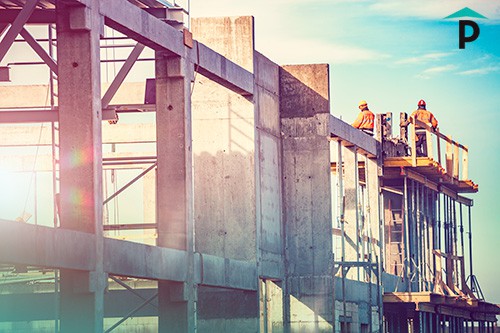Developer/Development Bonds are a type of agreement (usually lasting two years or more) that is used as a guarantee that a public improvement project will be efficiently and successfully completed.
Call: (844) 612-7238 to get started
Within the principle of said construction project, it will state that the improvements are being made to benefit the community in the long term and are therefore an essential task to be undertaken.
As well as completion of the project, the agreement will also guarantee that all contractors (including subcontractors) will be paid for their work, suitable materials will be supplied and that the improvements have a warranty on them in case of any defects. Although the latter is usually for a fixed term, it gives the developer and obligee the peace of mind in case anything happens to the work throughout the years.
A means of protection over a subdivision property, it’s typically required by local authorities in a city or town. In a developer bond, there are three parties involved in the process.
This includes the principal (the contractor) who purchases the bond as a guarantee, the obligee (usually the public agency) who legally required it, and the surety (underwriter) who issues the developer bond to the two parties.
There are many different names associated with this type of bond that you should be aware of – including Subdivision Bonds, Performance Bonds and Public Works Bonds.
The public construction project that may require a developer bond could include the maintenance or improvement of sidewalks, sewers, public buildings, streets, drainage systems, etc. – or any other public works that need to be completed. Because it can be used across a wide range of projects, the cost of the bond will depend on exactly what’s being done, alongside other specific factors listed below.
Are there any specific eligibility requirements?
When it comes to developer bonds, a contractor’s history and credit will play a large role in their eligibility. Alongside this, the bond issuer will want to guarantee that they have the financial resources to be able to complete the work efficiently.
To ensure this, they will usually require a certain amount in liquidity upfront. This, of course, will depend on the issuer themselves and what they state as a requirement, but it’s an important factor to note when trying to obtain a developer bond.
A premium will also be applied to the bond, which will take into account any risk associated with offering the bond. To find out more about the face value of developer bonds call (844) 612-7238 today.
What are the key benefits of developer bonds?
 Although developer bonds are usually a legal requirement, there are numerous benefits associated with them that make them an invaluable investment in the long term. These include but are not limited to the following:
Although developer bonds are usually a legal requirement, there are numerous benefits associated with them that make them an invaluable investment in the long term. These include but are not limited to the following:
For the developer
- Flexibility – the developer is able to choose either a letter of credit or a developer bond to provide the municipality with as a form of security for the project they are undertaking.
- Access to capital – through a developer bond, they will be able to access a substantial amount of capital that they can use for the project – to help cover the costs listed above (materials, salaries, etc).
- Off-balance sheet security – they will not have an impact on the developer’s balance sheet. This is a huge benefit that plays a large part in contractors seeking a developer bond.
For the Obligee
- A liquid and customized solution – each developer bond will be tailored to the unique project being completed, ensuring that the right financial protection is put in place from the start. In terms of liquidity, it’s a very liquid instrument unlike other borrowing methods – such as a bank loan.
- Promotes growth and trust
- Convenience – prevents municipalities from having to borrow from the bank.
When is a developer bond necessary?
 Before a lot map is filed for the project, a developer bond must be obtained by a developer. A vital part of the project, they give the obligee the assurance that they will receive the money back if the developer fails to complete the project within the agreed timeframe.
Before a lot map is filed for the project, a developer bond must be obtained by a developer. A vital part of the project, they give the obligee the assurance that they will receive the money back if the developer fails to complete the project within the agreed timeframe.
Used in lieu of an Irrevocable Letters of Credit or an influx of cash, the capital that can be accessed as part of a developer bond will satisfy the required cash-flow for the development project in question.
A type of bond that’s rising in popularity due to the benefits that they provide, it’s one alongside Subcontractor Bonds or Contractors Bonds that can make a big impact on any public improvement project.
What type of bond is a developer bond?
A developer bond is a type of performance bond (also known as Contract Bonds) for government-contracted work. Although the name is often interchangeable, the process and meaning are generally the same.
How much do developer bonds cost?
There are several factors that impact the price of a developer bond. Not only will it depend on the interest applied to it, but the bond issuer you choose and the contractor’s history.
For the latter, as part of the process (as mentioned above), an issuer may research into the developer’s credit score and work history to indicate their ability to repay what they owe.
How Pinnacle Surety can help
Do you want to find out more about developer bonds and how they can assist your project? Pinnacle Surety is here to help.
With over 25 years of experience, we can provide you with the best rates of developer bonds. Not only this, but we can also provide you with detailed information surrounding this type of bond, along with whether it’s the most suitable type for the project at hand.
As well as developer bonds, we also specialize in a wide range of other types, from Bid Bonds to Payment Bonds and contractors license bonds.
To discover more today, don’t hesitate to get in contact with us by either calling (844) 612-7238 or by filling out the inquiry form on our website.


